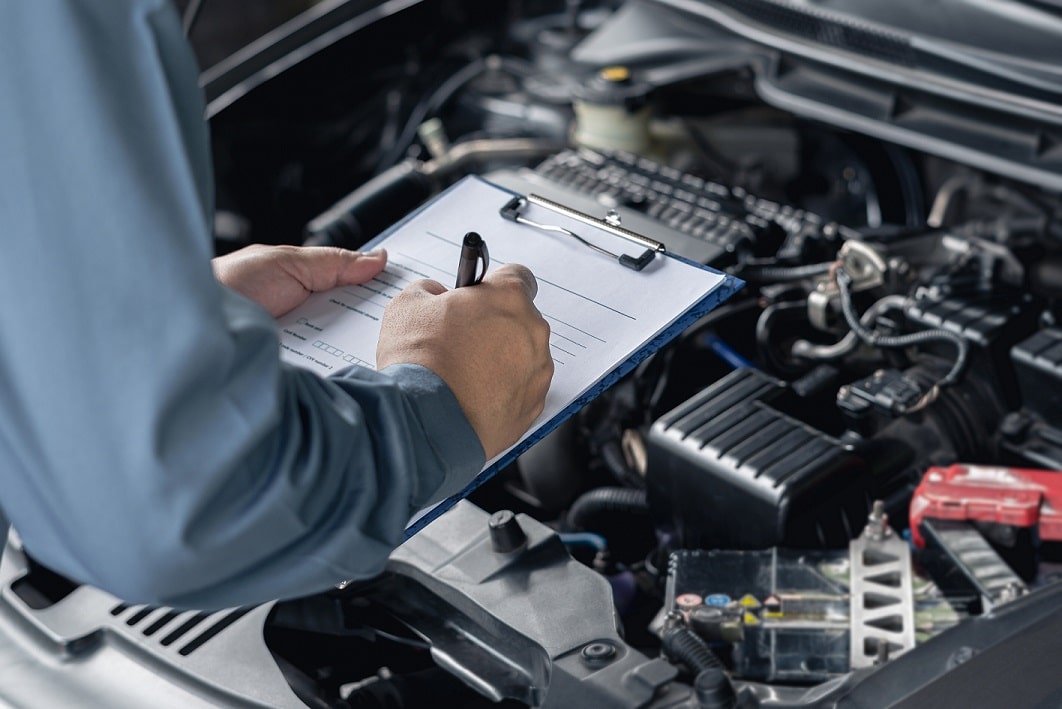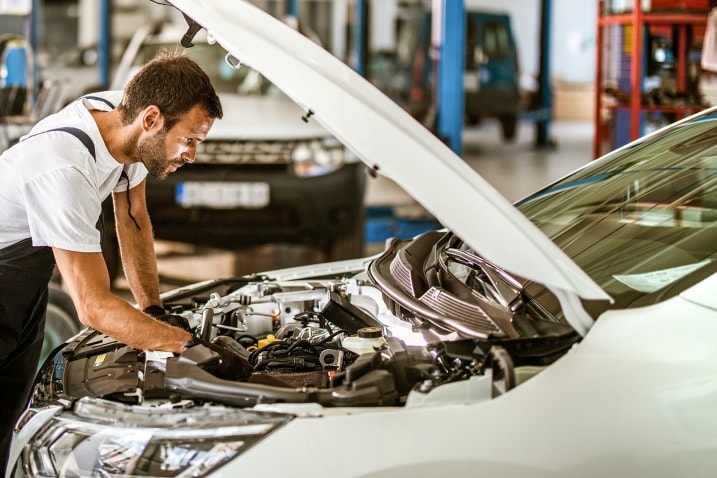All Categories
Featured
When it involves keeping a car, comprehending the distinctions in between regular repair and maintenance is important for cars and truck proprietors. Both elements are needed for the longevity and dependability of your automobile, however they offer unique objectives and are taken care of in a different way. By understanding when to carry out regular upkeep versus when to attend to repair services, you can maintain your lorry running smoothly and stay clear of costly surprises.
![]()
Routine Maintenance: Prevention is Key. Routine maintenance entails the regular, preventive treatment that your auto needs to avoid future problems. It is normally set up at specific periods, such as every 3,000 or 5,000 miles, based upon your automobile's handbook or producer suggestions. Regular maintenance helps make sure that your automobile stays in optimal condition, preventing deterioration from triggering major concerns down the line.
Some usual examples of regular upkeep include:
Oil Adjustments: Normal oil adjustments are critical to maintain your engine oiled and running successfully. Oil helps in reducing friction in between engine components, stopping getting too hot and unnecessary wear. Tire Maintenance: This includes tire rotations, balancing, and checking tire stress. Proper tire upkeep makes sure far better gas effectiveness, taking care of, and tire long life. Brake Inspections: Regular look at your brakes, including pads and liquid levels, can capture any kind of possible problems early, protecting against brake failure and making certain safety. Liquid Checks and Top-Ups: Ensuring your car has the appropriate degrees of coolant, transmission liquid, power guiding fluid, and brake liquid is vital for overall lorry health. Air Filter Replacement: Replacing the air filter makes sure that your engine gets clean air, which aids it run extra successfully and decreases engine stress. Regular upkeep is usually set up and doesn't involve fixing any broken parts-- it has to do with maintaining whatever in excellent functioning order and stopping future break downs.
Repair Works: Repairing the Unanticipated. Fixings, on the other hand, are required when something fails with your vehicle. Repairs resolve issues that influence the vehicle's efficiency or safety and security and need to be dealt with as quickly as feasible. Unlike upkeep, which is preventative, repair work usually take place when parts have worn, fell short, or malfunctioned.
Examples of usual repair services consist of:
Transmission Issues: If your cars and truck is having difficulty moving gears or experiences sliding, the transmission might require repair work or substitute. Engine Failing: If your engine begins misfiring, overheating, or delaying, it might require considerable repair work or substitute of parts like the timing belt, pistons, or seals. Brake Services: While brake pads become part of regular maintenance, if your brakes are making a grinding noise or are no longer working effectively, brake repair work will be required, such as changing the calipers or the blades. Battery Replacement: If your car won't begin or the battery is no more holding a charge, you'll need a substitute battery, which is a fixing. Suspension and Guiding Repair Work: Concerns with the suspension or steering system-- such as problem steering or a bumpy ride-- can be signs that components like struts or shock absorbers need repair work. Repair services are commonly extra urgent and costly than routine maintenance. They are required when something breaks or breakdowns, which can impact the vehicle's capability and security.
Secret Differences In Between Routine Repair And Maintenance. Timing: Regular upkeep is preventive and executed at arranged periods, while repair services are responsive and happen when something goes incorrect. Expense: Maintenance is normally cheaper, as it involves monitoring and replacing smaller components or fluids. Repair work, particularly significant ones, have a tendency to be extra expensive as a result of the intricacy of fixing busted or malfunctioning components. Function: The objective of upkeep is to keep your car running well and stop problems. Repairs, on the various other hand, are necessary to take care of concerns that have already taken place. Regularity: Regular maintenance takes place regularly at established periods (e.g., every 5,000 miles), while repairs are less predictable, commonly occurring when parts use or fail out suddenly. Why Both are essential. Both routine repair and maintenance are necessary for the long-lasting health and wellness of your car. Normal maintenance aids maintain your vehicle running efficiently and can prevent lots of common issues from developing in the first location. By remaining on top of set up solutions, you can deal with small issues prior to they develop into pricey fixings.
![]()
Nevertheless, fixings are sometimes unavoidable. Despite the most effective maintenance, components wear in time, and unexpected concerns can occur. When repair services are required, resolving them immediately can prevent additional damage and ensure your lorry's security and integrity.
Verdict. In recap, comprehending the distinction between regular repair and maintenance aids you take the best steps to look after your automobile. Normal upkeep can conserve you money by avoiding bigger problems, while fixings are required when something fails. By remaining aggressive with upkeep and addressing repair work when needed, you can prolong the life-span of your vehicle and ensure that it remains to execute at its best for many years to come.

Routine Maintenance: Prevention is Key. Routine maintenance entails the regular, preventive treatment that your auto needs to avoid future problems. It is normally set up at specific periods, such as every 3,000 or 5,000 miles, based upon your automobile's handbook or producer suggestions. Regular maintenance helps make sure that your automobile stays in optimal condition, preventing deterioration from triggering major concerns down the line.
Some usual examples of regular upkeep include:
Oil Adjustments: Normal oil adjustments are critical to maintain your engine oiled and running successfully. Oil helps in reducing friction in between engine components, stopping getting too hot and unnecessary wear. Tire Maintenance: This includes tire rotations, balancing, and checking tire stress. Proper tire upkeep makes sure far better gas effectiveness, taking care of, and tire long life. Brake Inspections: Regular look at your brakes, including pads and liquid levels, can capture any kind of possible problems early, protecting against brake failure and making certain safety. Liquid Checks and Top-Ups: Ensuring your car has the appropriate degrees of coolant, transmission liquid, power guiding fluid, and brake liquid is vital for overall lorry health. Air Filter Replacement: Replacing the air filter makes sure that your engine gets clean air, which aids it run extra successfully and decreases engine stress. Regular upkeep is usually set up and doesn't involve fixing any broken parts-- it has to do with maintaining whatever in excellent functioning order and stopping future break downs.
Repair Works: Repairing the Unanticipated. Fixings, on the other hand, are required when something fails with your vehicle. Repairs resolve issues that influence the vehicle's efficiency or safety and security and need to be dealt with as quickly as feasible. Unlike upkeep, which is preventative, repair work usually take place when parts have worn, fell short, or malfunctioned.
Examples of usual repair services consist of:
Transmission Issues: If your cars and truck is having difficulty moving gears or experiences sliding, the transmission might require repair work or substitute. Engine Failing: If your engine begins misfiring, overheating, or delaying, it might require considerable repair work or substitute of parts like the timing belt, pistons, or seals. Brake Services: While brake pads become part of regular maintenance, if your brakes are making a grinding noise or are no longer working effectively, brake repair work will be required, such as changing the calipers or the blades. Battery Replacement: If your car won't begin or the battery is no more holding a charge, you'll need a substitute battery, which is a fixing. Suspension and Guiding Repair Work: Concerns with the suspension or steering system-- such as problem steering or a bumpy ride-- can be signs that components like struts or shock absorbers need repair work. Repair services are commonly extra urgent and costly than routine maintenance. They are required when something breaks or breakdowns, which can impact the vehicle's capability and security.
Secret Differences In Between Routine Repair And Maintenance. Timing: Regular upkeep is preventive and executed at arranged periods, while repair services are responsive and happen when something goes incorrect. Expense: Maintenance is normally cheaper, as it involves monitoring and replacing smaller components or fluids. Repair work, particularly significant ones, have a tendency to be extra expensive as a result of the intricacy of fixing busted or malfunctioning components. Function: The objective of upkeep is to keep your car running well and stop problems. Repairs, on the various other hand, are necessary to take care of concerns that have already taken place. Regularity: Regular maintenance takes place regularly at established periods (e.g., every 5,000 miles), while repairs are less predictable, commonly occurring when parts use or fail out suddenly. Why Both are essential. Both routine repair and maintenance are necessary for the long-lasting health and wellness of your car. Normal maintenance aids maintain your vehicle running efficiently and can prevent lots of common issues from developing in the first location. By remaining on top of set up solutions, you can deal with small issues prior to they develop into pricey fixings.

Nevertheless, fixings are sometimes unavoidable. Despite the most effective maintenance, components wear in time, and unexpected concerns can occur. When repair services are required, resolving them immediately can prevent additional damage and ensure your lorry's security and integrity.
Verdict. In recap, comprehending the distinction between regular repair and maintenance aids you take the best steps to look after your automobile. Normal upkeep can conserve you money by avoiding bigger problems, while fixings are required when something fails. By remaining aggressive with upkeep and addressing repair work when needed, you can prolong the life-span of your vehicle and ensure that it remains to execute at its best for many years to come.
Latest Posts
Stylish Convenience Starts from the Ground Up
Published Apr 20, 25
1 min read
Discovering the Conveniences of WyHy Share Interest-bearing Account
Published Apr 20, 25
1 min read
A Retro Eating Experience at Gasoline Allie's.
Published Apr 20, 25
2 min read